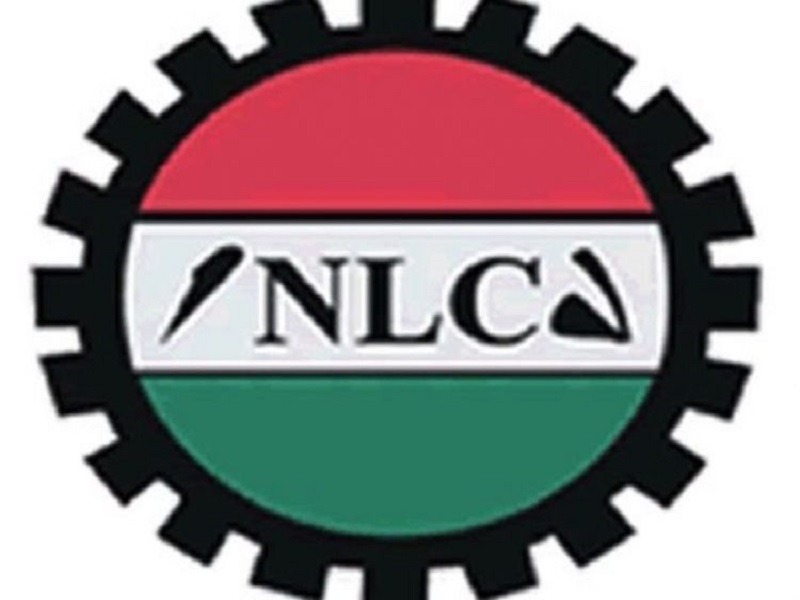Archives
Labour Faults Oyo Govt’s N5.2bn Wage Bill Analysis
The Nigeria Labour Congress (NLC), Oyo State Chapter, has faulted the analysis by the state government of its finances and inadequacies to pay salaries regularly, especially the claim of having a monthly wage bill of N5.2 billion in the past one year.
Chairman of the labour union, Mr Waheed Olojede, described the analysis of the wage bill released by the state government as misleading.
The state government, through the Commissioner for Finance and Budget, Mr Bimbo Adekanmbi, had last Thursday, reiterated that the inflow to the state in the past one year averaged N3billion monthly as against a wage bill of N5.2billion.
Adekanmbi had explained that the state got a federal allocation of N37.044 billion in the past 12 months but still had a deficit of N29 billion in paying salaries.
Olojede argued that the state government announced the N5.2billion wage bill when the state had commissioners, aides, among other political appointees, and the same wage bill continued to be quoted despite the non-appointment of political office holders for about one year, until recently.
Substantiating the union’s argument, Olojede made reference to the N17.3 billion bailout fund of the Federal Government which the state used to clear four months arrears of salaries in 2015.
“I consider the analysis of the wage bill released by the state government as misleading. And I want to say that government’s claim to N5.2 billion monthly wage bill is not the true position of the workers’ wage bill in the state, especially in recent times.”
Also, stakeholders in the Peoples Democratic Party (PDP) across the 14 local governments in Ibadan/Ibarapa zone of Oyo State have declared solidarity with the labour union in the state over their “genuine demands” from the state government, urging the state government to pay “the over six months’ salaries being owed these workers.”
The stakeholders said this in a statement signed by Honourable Muideen Inakoju and Mr Nurudeen Oke, at the end of a meeting held at the Jogor Events Centre, Ibadan.
Meanwhile, apparently worried by the continued face-off between the Labour and Oyo State government, at least 25 leading women drawn from different walks of life have called on the Olubadan of Ibadanland, Oba Saliu Akanmu Adetunji, to intervene in the matter.
The women groups, led by Professor Mrs Adetoun Ogunseye and Chief Bola Doherty, amongst others, lamented the continued face-off and the effects on the society, saying as the father of all, with no affiliation towards any political party or ideological persuasion, the 87-year old monarch was in a better position to bring about amicable resolution of the crisis between the duo.
Chief Doherty said, ‘As mothers, we are not comfortable with the on-going labour crisis in Oyo State and its effects on the society. Workers not going to work, school children and teachers not going to school are not pleasant things. As non-governmental organisations, comprising women from many organisations such as FIDA, FOMWAN, NCWS, YWCA, AGES and others, we believe that only a monarch of your standing, with no partisan commitment towards any political party could intervene in this matter.
Responding, the Olubadan of Ibadanland, Oba Saliu Adetunji, said that he would not be tired of wading into the Oyo State government/Labour face-off until the conflict was amicably resolved. According to the first class monarch, while no one was out to apportion blame to either of the warring parties, the continued non-attendance of students and teachers in schools was giving everyone a cause for concern.
He expressed the hope that he would contact the state governor, Senator Abiola Ajimobi and the Labour leaders as soon as possible with a view to resolving the dispute, that peace might reign supreme in the land again.
Tribune

Archives
WAIVER CESSATION: Igbokwe urges NIMASA to evolve stronger collaboration with Ships owners

…Stresses the need for timely disbursement of N44.6billion CVFF***
Highly revered Nigerian Maritime Lawyer, and Senior Advocate of Nigeria (SAN), Mike Igbokwe has urged the Nigeria Maritime Administration and safety Agency (NIMASA) to partner with ship owners and relevant association in the industry to evolving a more vibrant merchant shipping and cabotage trade regime.
Igbokwe gave the counsel during his paper presentation at the just concluded two-day stakeholders’ meeting on Cabotage waiver restrictions, organized by NIMASA.
“NIMASA and shipowners should develop merchant shipping including cabotage trade. A good start is to partner with the relevant associations in this field, such as the Nigeria Indigenous Shipowners Association (NISA), Shipowners Association of Nigeria (SOAN), Oil Trade Group & Maritime Trade Group of the Nigerian Association of Chambers of Commerce, Industry, Mines and Agriculture (NACCIMA).
“A cursory look at their vision, mission and objectives, show that they are willing to improve the maritime sector, not just for their members but for stakeholders in the maritime economy and the country”.
Adding that it is of utmost importance for NIMASA to have a through briefing and regular consultation with ships owners, in other to have insight on the challenges facing the ship owners.
“It is of utmost importance for NIMASA to have a thorough briefing and regular consultations with shipowners, to receive insight on the challenges they face, and how the Agency can assist in solving them and encouraging them to invest and participate in the maritime sector, for its development.
“NIMASA should see them as partners in progress because, if they do not invest in buying ships and registering them in Nigeria, there would be no Nigerian-owned ships in its Register and NIMASA would be unable to discharge its main objective.
The Maritime lawyer also urged NIMASA to disburse the Cabotage Vessel Financing Fund (CVFF)that currently stands at about N44.6 billion.
“Lest it be forgotten, what is on the lips of almost every shipowner, is the need to disburse the Cabotage Vessel Financing Fund (the CVFF’), which was established by the Coastal and Inland Shipping Act, 2003. It was established to promote the development of indigenous ship acquisition capacity, by providing financial assistance to Nigerian citizens and shipping companies wholly owned by Nigerian operating in the domestic coastal shipping, to purchase and maintain vessels and build shipping capacity.
“Research shows that this fund has grown to about N44.6billion; and that due to its non-disbursement, financial institutions have repossessed some vessels, resulting in a 43% reduction of the number of operational indigenous shipping companies in Nigeria, in the past few years.
“Without beating around the bush, to promote indigenous maritime development, prompt action must be taken by NIMASA to commence the disbursement of this Fund to qualified shipowners pursuant to the extant Cabotage Vessel Financing Fund (“CVFF”) Regulations.

“Indeed, as part of its statutory functions, NIMASA is to enforce and administer the provisions of the Cabotage Act 2003 and develop and implement policies and programmes which will facilitate the growth of local capacity in ownership, manning and construction of ships and other maritime infrastructure. Disbursing the CVFF is one of the ways NIMASA can fulfill this mandate.
“To assist in this task, there must be collaboration between NIMASA, financial institutions, the Minister of Transportation, as contained in the CVFF Regulations that are yet to be implemented”, the legal guru highlighted further.
He urged the agency to create the right environment for its stakeholders to build on and engender the needed capacities to fill the gaps; and ensure that steps are being taken to solve the challenges being faced by stakeholders.
“Lastly, which is the main reason why we are all here, cessation of ministerial waivers on some cabotage requirements, which I believe is worth applause in favour of NIMASA.
“This is because it appears that the readiness to obtain/grant waivers had made some of the vessels and their owners engaged in cabotage trade, to become complacent and indifferent in quickly ensuring that they updated their capacities, so as not to require the waivers.
“The cessation of waivers is a way of forcing the relevant stakeholders of the maritime sector, to find workable solutions within, for maritime development and fill the gaps in the local capacities in 100% Nigerian crewing, ship ownership, and ship building, that had necessitated the existence of the waivers since about 15 years ago, when the Cabotage Act came into being.
“However, NIMASA must ensure that the right environment is provided for its stakeholders to build and possess the needed capacities to fill the gaps; and ensure that steps are being taken to solve the challenges being faced by stakeholders. Or better still, that they are solved within the next 5 years of its intention to stop granting waivers”, he further explained.
Archives
Breaking News: The Funeral Rites of Matriarch C. Ogbeifun is Live
The Burial Ceremony of Engr. Greg Ogbeifun’s mother is live. Watch on the website: www.maritimefirstnewspaper.com and on Youtube: Maritimefirst Newspaper.
Archives
Wind Farm Vessel Collision Leaves 15 Injured

…As Valles Steamship Orders 112,000 dwt Tanker from South Korea***
A wind farm supply vessel and a cargo ship collided in the Baltic Sea on Tuesday leaving 15 injured.
The Cyprus-flagged 80-meter general cargo ship Raba collided with Denmark-flagged 31-meter wind farm supply vessel World Bora near Rügen Island, about three nautical miles off the coast of Hamburg.
Many of those injured were service engineers on the wind farm vessel, and 10 were seriously hurt.
They were headed to Iberdrola’s 350MW Wikinger wind farm. Nine of the people on board the World Bora were employees of Siemens Gamesa, two were employees of Iberdrola and four were crew.
The cause of the incident is not yet known, and no pollution has been reported.
After the collision, the two ships were able to proceed to Rügen under their own power, and the injured were then taken to hospital.
Lifeboat crews from the German Maritime Search and Rescue Service tended to them prior to their transport to hospital via ambulance and helicopter.
“Iberdrola wishes to thank the rescue services for their diligence and professionalism,” the company said in a statement.
In the meantime, the Hong Kong-based shipowner Valles Steamship has ordered a new 112,000 dwt crude oil tanker from South Korea’s Sumitomo Heavy Industries Marine & Engineering.
Sumitomo is to deliver the Aframax to Valles Steamship by the end of 2020, according to data provided by Asiasis.
The newbuild Aframax will join seven other Aframaxes in Valles Steamship’s fleet. Other ships operated by the company include Panamax bulkers and medium and long range product tankers.
The company’s most-recently delivered unit is the 114,426 dwt Aframax tanker Seagalaxy. The naming and delivery of the tanker took place in February 2019, at Namura Shipbuilding’s yard in Japan.
Maritime Executive with additional report from World Maritime News




























